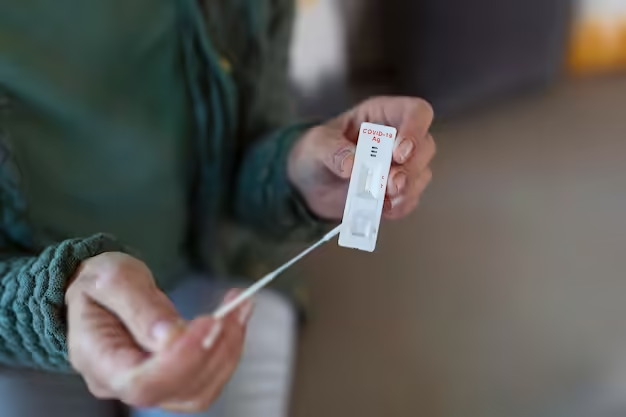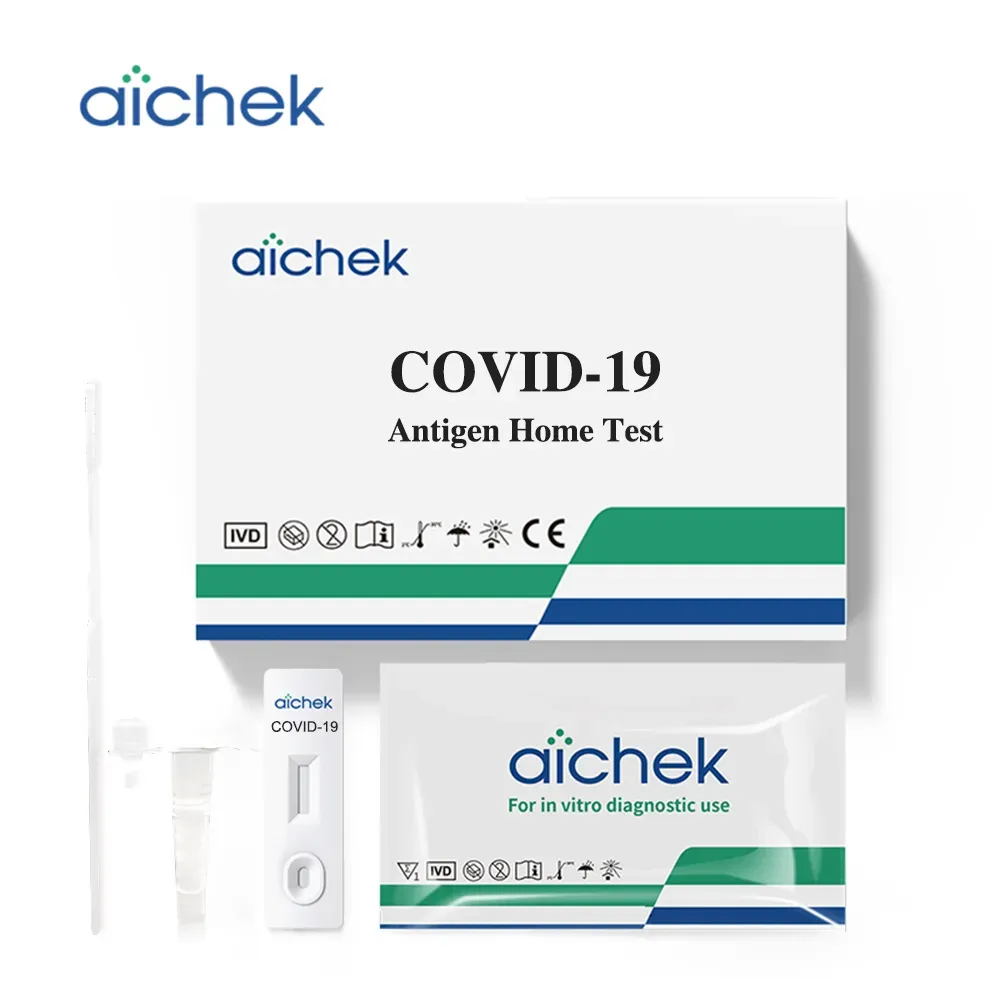
Get A Quote
Are Covid Tests Always Accurate?
Though the COVID pandemic is over for a while, many people still have caught it in 2023, so the importance of accurate testing cannot be overstated. COVID tests have become a routine part of our lives, whether we're trying to ensure our safety or planning to attend gatherings. However, questions and concerns about the accuracy of these tests, particularly “are covid tests always accurate?”, “are covid test accurate if expired?” and “are covid tests accurate for new variants?”
In this blog, we'll explore the accuracy of COVID tests, how to use home tests effectively, the impact of test storage conditions, and whether these tests have expiration dates.
1.1 How to Use a Home COVID Test
Home COVID tests have provided individuals with a convenient way to check their COVID status without leaving the comfort of their homes. However, using these tests correctly is crucial for accurate results. Here's a step-by-step guide on how to use a home COVID test:
1. Wash Your Hands: Begin by washing your hands thoroughly with warm water and soap for at least 30 seconds.
2. Test Kit Components: The kit typically contains a collection swab, a test strip, and a small vial of liquid. Lay these components out on a clean surface.
3. Swab Collection: Open the collection swab and insert it into each nostril, rotating it five times against the inner wall. Insert the swab approximately ½ to ¾ inch into the nostrils. Afterward, put the swab back into its packaging; you'll need it again.
4. Liquid Vial: Tap the bottom of the vial of liquid three times on a hard surface.
5. Swab in Liquid: Open the large cap of the vial, insert the swab, and stir it 15 times. Squeeze the sides of the vial against the swab as you pull it out.
6. Test Strip: Open the test strip, which typically has both a "C" and a "T."
7. Adding Sample: Open the smaller cap on the vial of liquid, then add three drops of your sample into the collection area of the strip.
8. Set a Timer: Set a timer for 15 minutes and avoid disturbing the test strip during this time.
9. Read Your Test: After 15 minutes, check the test results.
1.2 Where to Keep COVID Test Kits
The accuracy of a COVID test can be significantly affected by how you store the test kit, especially in extreme temperatures. Storing these rapid tests properly is essential to ensure reliable results. Here are some important points to consider:
- Temperature Sensitivity: Extreme heat and cold can damage the tests and yield false-negative results, indicating you're COVID-free when you may not be.
- Quick Storage: Get the tests indoors as soon as possible, especially if they were delivered to your home. Exposure to high temperatures can denature the test components, affecting their sensitivity.
- Proper Storage: Keep the tests in an area of your home that maintains room temperature. Avoid places with temperature fluctuations, such as unheated garages, basements, or spaces exposed to heat sources like ovens.
- Check for Damage: Examine the test kit for any damage that may have occurred during shipping. Leaking reagents or damaged components can render the test inaccurate.
- Follow Instructions: Pay close attention to the specific instructions provided with the test kit, especially regarding storage and usage guidelines for that particular brand.
- Timing Matters: Read and interpret your test results within the recommended time frame to ensure accuracy. Waiting too long or checking too soon can lead to erroneous results.
1.3 Do COVID Tests Expire
One common concern is whether COVID tests have expiration dates and if those dates can be extended. Here's what you need to know:
- Expiration Date: All at-home OTC COVID diagnostic tests come labeled with an expiration date on the outer box or package.
- Shelf-Life: The shelf-life of a test is determined by how long it performs as accurately as when manufactured. This is measured from the test's manufacturing date.
- Stability Testing: Manufacturers perform stability testing to confirm the time period over which the test's performance remains stable. It typically involves storing the test for the proposed shelf-life period plus some extra time to ensure reliability.
- Extension Possible: Expiration dates can be extended as additional stability data is collected. This typically happens when manufacturers have more stability testing results, often after 12 or 18 months.
- FDA Authorization: The FDA authorizes at-home COVID tests with a shelf-life of about four to six months based on initial study results. Extensions are granted later when additional data is available.
- Check for Updates: Test manufacturers may send notices to customers when expiration dates are extended, but if you didn't purchase the test directly from the manufacturer, you might not receive such notifications.
1.4 The Necessity of COVID at Home
Treating COVID at home is a reality many of us face. Most individuals with mild COVID symptoms can recover at home with proper care. Here's what you need to know if you or a loved one are managing COVID at home:
- Treatment: Rest, fluids, and pain relievers are the primary components of at-home treatment for mild cases. However, those over 65 or with chronic medical conditions should contact their healthcare provider as they may be eligible for specific treatments.
- Emergency Signs: It's essential to watch for signs and symptoms that worsen and may indicate a need for emergency care. Trouble breathing, persistent chest pain, new confusion, trouble staying awake, or changes in skin color are some of the warning signs.
- Protecting Others: If you're ill with COVID, getting tested and following isolation guidelines can help prevent the virus's spread.
- End of Isolation: If you have COVID, you can end home isolation based on certain criteria, and it's crucial to follow these guidelines to protect others.
1.5 Introduction to Aichek
Aichek, a high-tech enterprise providing Contract Development and Manufacturing Organization (CDMO) services to global in-vitro diagnostic reagent enterprises. Aichek is dedicated to offering a one-stop solution for global Point of Care Testing (POCT) diagnostic customers. Our commitment to developing rapid, accurate, and effective testing services aligns with the critical need for reliable diagnostics, especially in the current COVID landscape.
In the quest to combat the pandemic, accurate testing, proper usage, and effective storage of COVID tests are vital. By staying informed and following best practices, we can better protect ourselves and our communities. Aichek stands as a testament to the dedication and innovation that continues to drive advancements in diagnostic testing, providing hope for a healthier future.


